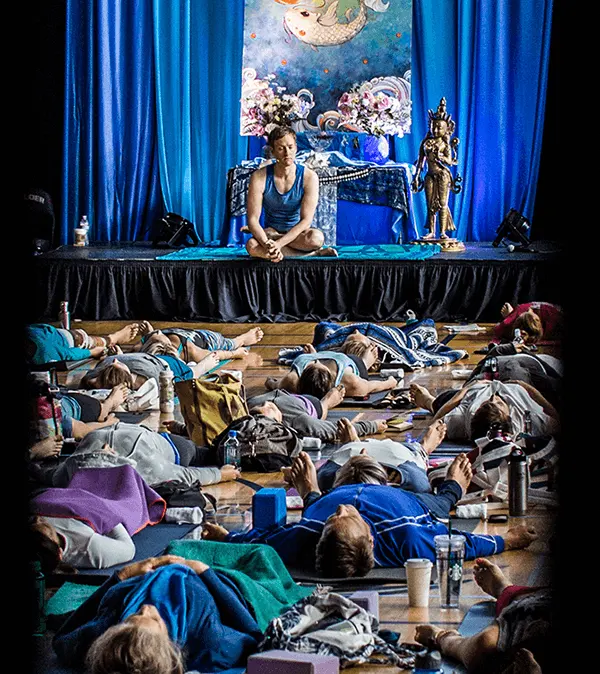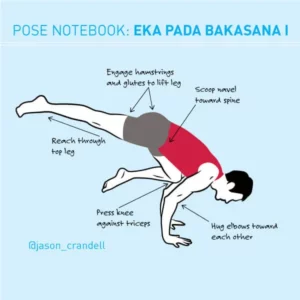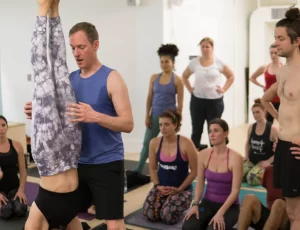As yoga teachers, we’re committed to the wellbeing of our students. After all, our bottom line is to help people reduce their suffering. We even commit to ongoing, continuing education to help provide more skillful service. Yet, we often ignore how easy it is to injure ourselves–or become overly stressed out and ungrounded–when we teach. No, our job isn’t too dirty and there are plenty of other vocations that carry much greater risk. But teaching yoga presents plenty of physical and emotional challenges. Here are a few ways to keep yourself healthy, safe and grounded while you teach.
Yoga Teaching Tips: How to Stay Grounded, Safe, and Healthy
Limit Demonstrations
It seems safe, easy and effective to demonstrate postures in class. You just pop yourself into an arm-balance, backbend or twist to visually express what you’re teaching. The problem is that you’re cold, a little adrenalized, and focused on the outward appearance of the pose—oh, and you’re probably always doing your demos on the same side. Sure, there is a time and place for demos, but the list of injuries that occur from seemingly simple, innocuous moments like these is frighteningly long. So, if you need to demonstrate please remember not to max yourself out. Check yourself if you realize you’re trying to impress your students. And, when it’s appropriate, have one of your students provide the demonstration since they’re already prepared for the posture that you’re teaching.
Be Mindful When You Give Adjustments
When I teach trainings, I ask students to raise their hand if they’ve been injured while receiving an adjustment. Unfortunately, 35-40% of the room usually raises their hand. If I were to ask a room full of teachers how many of them have injured themselves while giving an adjustment, I’m willing to guess that the percentage would be similar. Giving adjustments can compromise your body if you’re not focused on your own alignment and sensations. You can also make matters worse for yourself if you’re already experiencing a knee, lower-back, or shoulder injury and you ignore them while teaching. Providing good adjustments is nice, but give yourself permission to prioritize your own safety and comfort in the process. If you’re overly fatigued or nursing an injury, it may be in everyone’s best interest to take the day off from giving yoga adjustments.
See also Verbal Cues for Yoga Poses: Immediately Improve Your Communication
Remember to Breathe
Every time you tell your students to breathe, pause and take a breath yourself. Doing this will help you stay grounded, relaxed and focused as you teach. Staying grounded, relaxed and focused will make your classes even better and help stave off fatigue and burnout.
Trust the Power of the Practice
Yoga teachers (including myself) have a tendency to be very critical of themselves. When we’re overly critical or lack confidence in our ability to teach, we start to over-effort. We forget that the yoga class is NOT all about the teacher. It’s about the transcendent, timeless experience of doing the practice. In order to stay grounded, relaxed and comfortable as a teacher, you have to trust that the practice is inherently transformational and that you’re simply facilitating your students’ experience. You’ll stay happier and healthier if you let the students’ practice do the majority of the work.
Be Kind to Yourself
Teaching yoga can be an emotional rollercoaster—and, it will certainly expose aspects of your personality and ego that other aspects of the practice don’t. Be mindful of your inner-narrative and practice kindness towards yourself. Doing so will decrease stress and help you weather the challenges that arise


